Building Power
Scaling solutions, funding, and influence for climate justice


In 2021, The Solutions Project disrupted the philanthropic and media sector to focus on climate justice and solidarity. With big investments from our philanthropic partners, we scaled and expanded our support of grassroots organizations to build solutions, funding, and influence for communities most affected by the climate crisis.
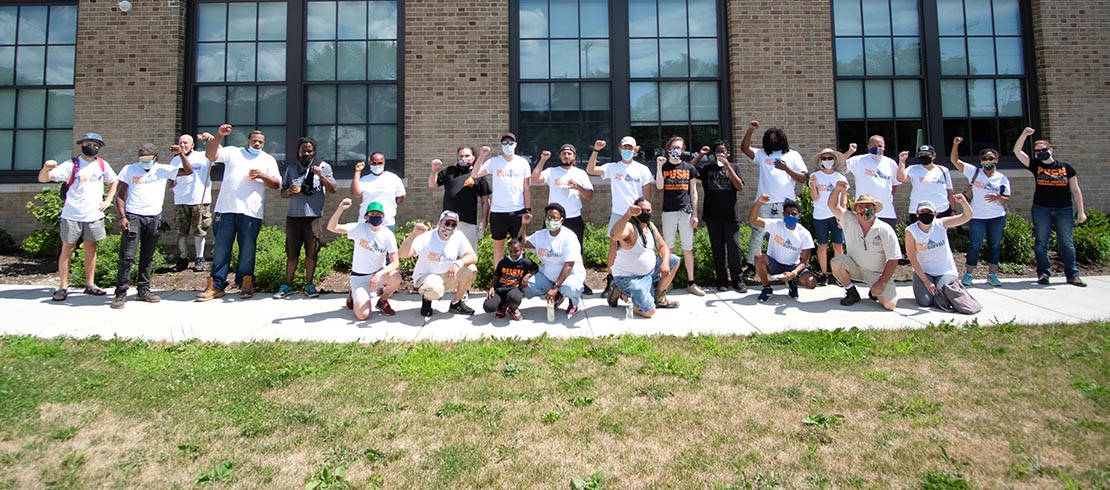 PUSH Buffalo
PUSH Buffalo
We had a rapid year of growth to meet this moment, adding new members to our team and new partnerships across media, culture, philanthropy, and government.
With big investment that matches the scale of the climate crisis, the bold and courageous climate justice leaders we support are creating a blueprint for transformation.
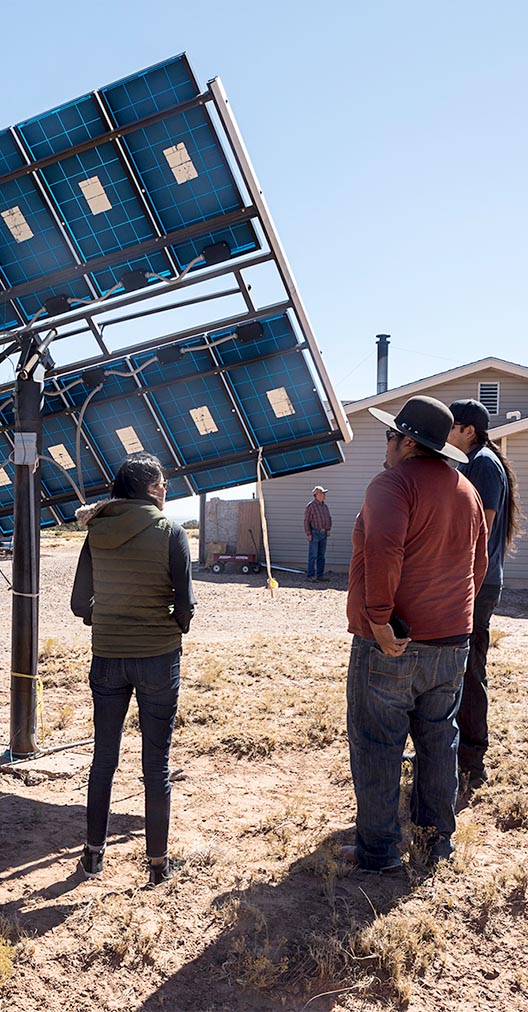 Native Renewables
Native Renewables
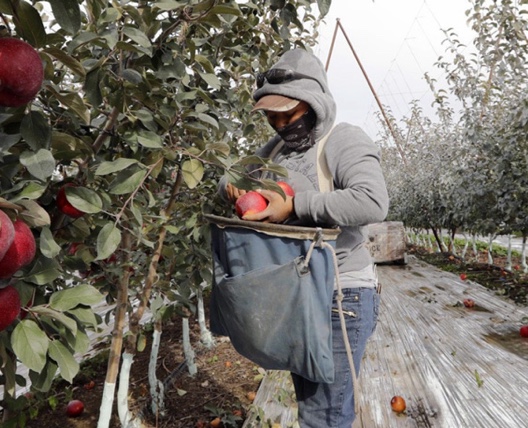 UFW Foundation
UFW Foundation
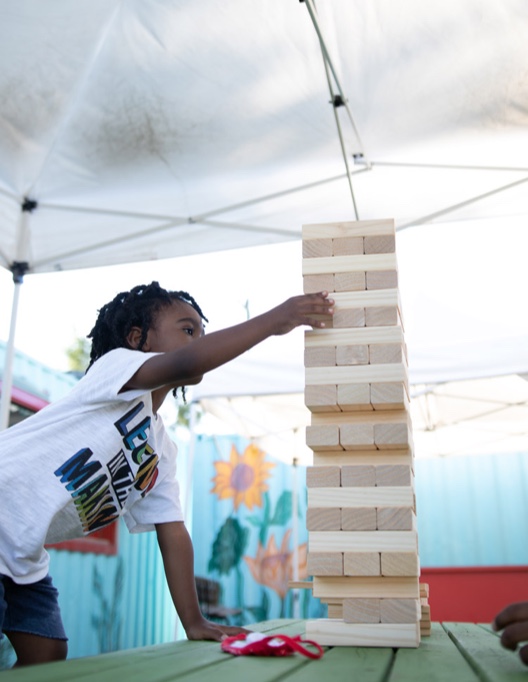 Soulardarity
Soulardarity
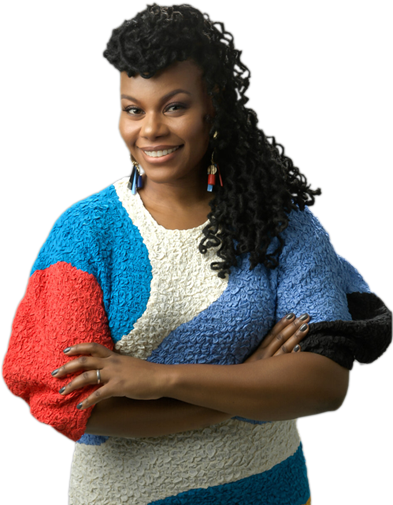
Foreward from Gloria Walton,
President + CEO of The Solutions Project
When it comes to equity and justice, it’s imperative to put your money where your mouth is. In a moment when movement values have created a buzz, everyone is talking about equity and justice, but the question is - what are we doing about it?
While there is current uncertainty and fear of the urgent climate crisis, rise of anti-democratic forces globally, and the volatility of our economy, this isn’t a time to retract. It’s time to join forces and be in solidarity as we take collective action on our equity commitments. This moment requires audacious leadership, audacious giving, and audacious impact.
At The Solutions Project, we are committed to equity and justice by practicing accountability, transparency, and solidarity.
In 2020, our work led to a dramatic shift in philanthropy and media coverage towards climate justice solutions created by Black, Indigenous, immigrants, women, and People of Color. In 2021, we scaled our impact by increasing grants by more than five-fold, from two million to nearly $11.5 million, and tripling the number of grantees we support, 193 organizations across 26 states and territories, with 82% of it to People of Color-led organizations.
In an effort to build grassroots power and build with movement leaders, we co-created three funds to center and strengthen frontline leadership and innovations: Justice40 Accelerator increases access to federal funding for grassroots groups, Fund for Frontline Power is a space where grassroots leaders are governing capital flow, and Communicating Our Power strengthens organizational narrative and communications capacity.
We also shifted the national dialogue towards equity by reaching over 25 million people with climate justice solutions stories told by our grantees. Thank you to our partners and supporters for making all of this a reality. As a result, in 2022, we were named one of the world’s most innovative companies by Fast Company and won two Anthem Awards for brand and strategy. And we are just getting started.
Let’s double down on what’s working - and that’s frontline leadership and solutions. Frontline communities are setting the standards and winning policy change with nascent support from philanthropy and coverage in the media. We are proud to have a track record in disrupting the status quo, and you can bet we will continue to do our best and do more to support frontline success. Our grantees and their respective communities are the ones accelerating a just transition to a regenerative economy that works for all of us. Imagine what will come when they have the resources to thrive and the spotlight to show the world what is possible.
Help us resource grassroots communities like we never have before. Will you join us?

President + CEO
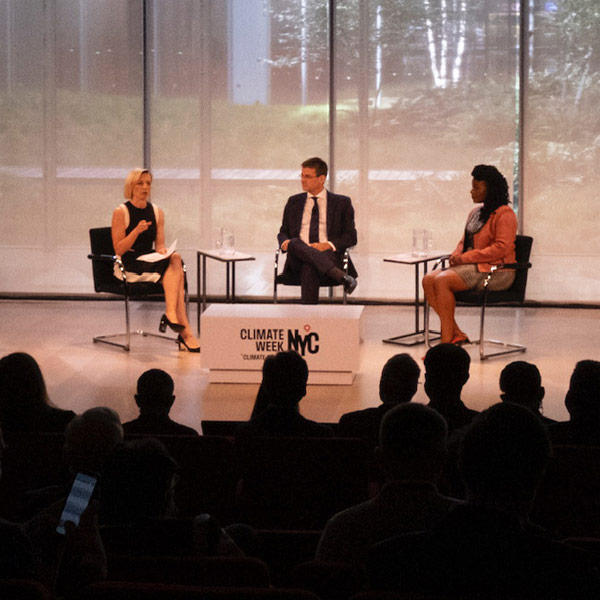
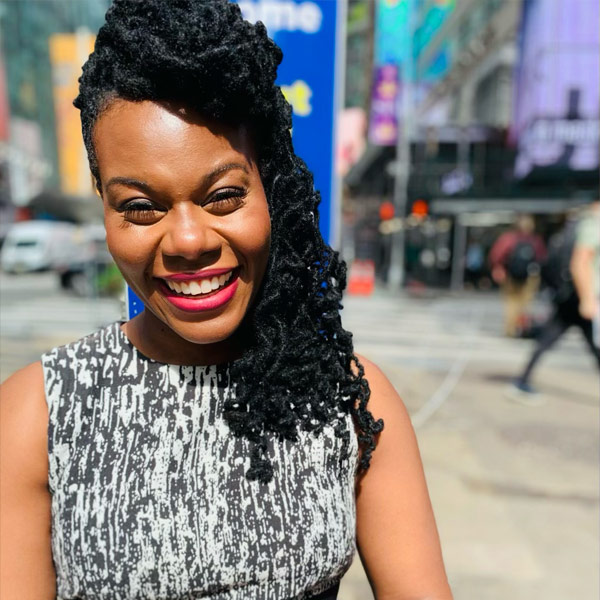
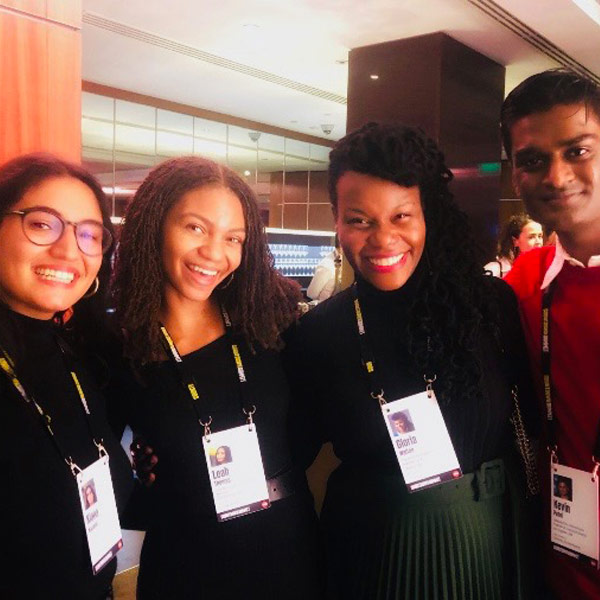
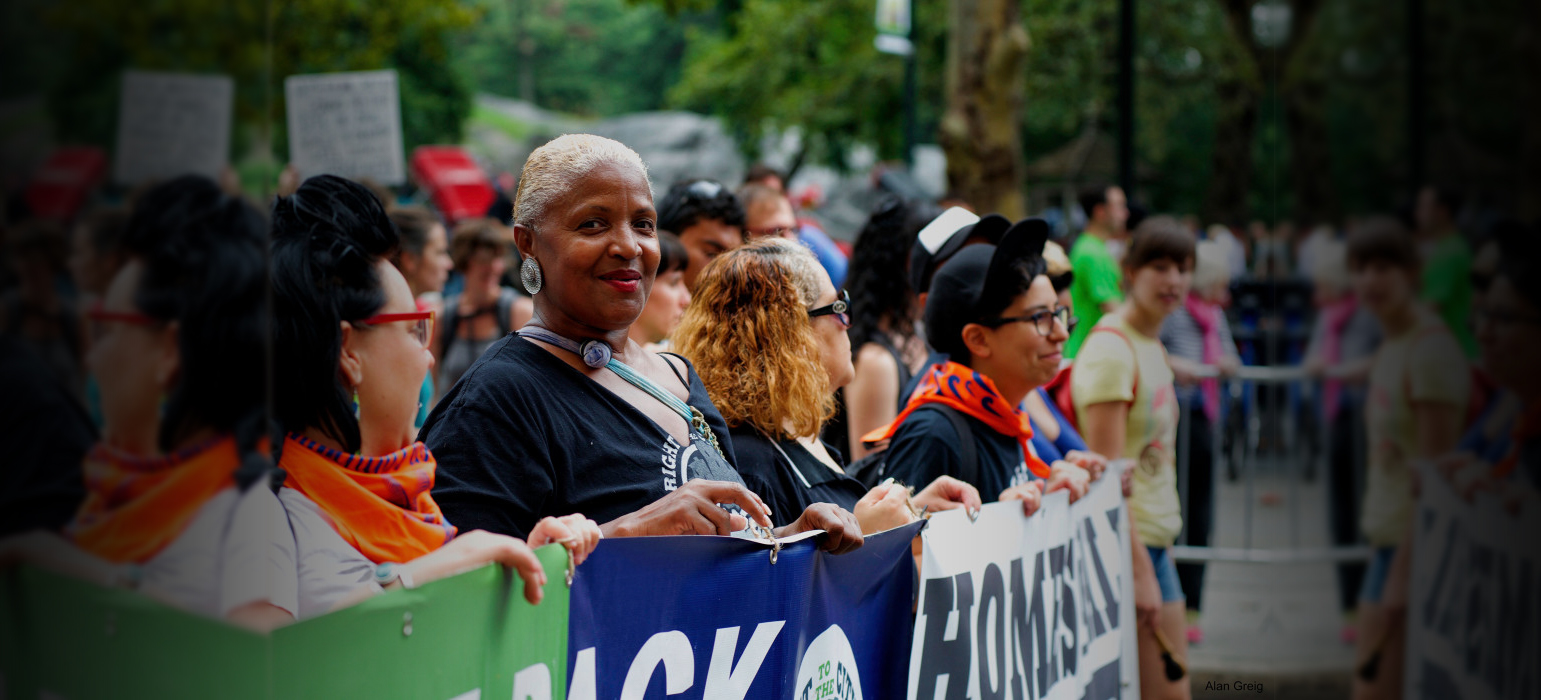 NY Renews Protest
NY Renews Protest
The Solutions Project makes grants to organizations working at the intersection of climate, racial, and economic justice. We prioritize communities and leadership that are under-invested by philanthropy and are also innovators in climate justice.
In addition to providing self-determination grants (general operational support) to organizations, we also fund strategic alliances of grassroots organizations and co-created three innovative funds with grantee partners in 2021.
More money helps these grassroots organizations scale solutions that are responsive to and rooted in community.

 Led by women or non-binary people
Led by women or non-binary people
 Led by people of color
Led by people of color
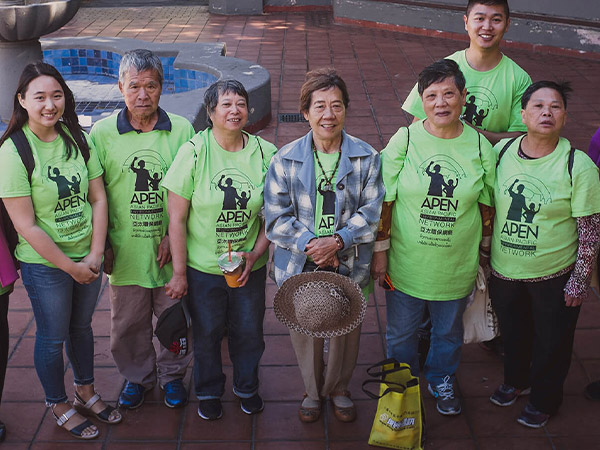
Members and staff of Asian Pacific Environmental Network (APEN)
We provide additional support through communications training, digital capacity, and media programs. More media attention brings climate justice stories into the public imagination and influences policymakers and people all over the country to show up for climate justice.
65 grantees received custom capacity-building investments
25 million people viewed their stories with nine billion possible impressions across media channels
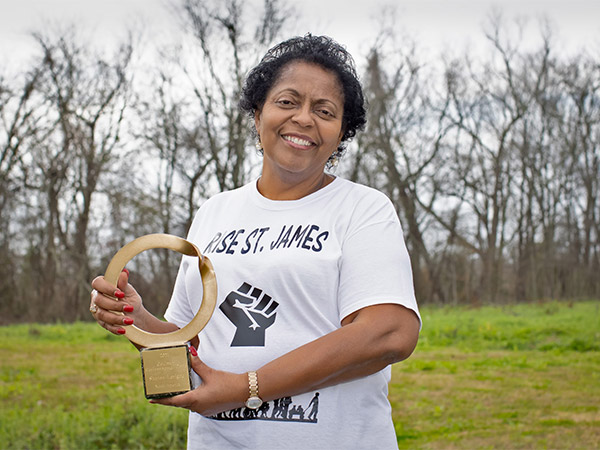
Goldman Prize winner Sharon Lavigne, ED of Rise St. James
The percentage of clean energy media coverage that references equity and justice reached a record high. When climate justice is visible to more people through media representation, we show what is possible and build support for policy solutions that act on justice.
This narrative shift shows the ripple effect of our strategy to amplify our grantees’ climate solutions stories in the media. As equity is adopted as a core value across our field, rooting stories in communities of color is key.
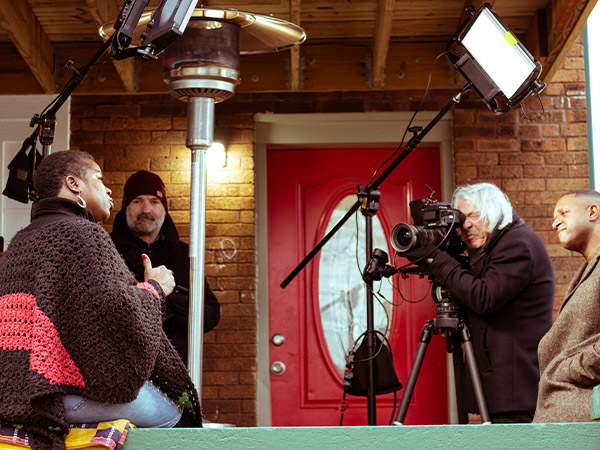
Soulardarity in Highland Park, MI being interviewed by the Today Show
When frontline communities are represented in every space, solutions are informed and rooted in equity.
As these communities and leaders continue to build power, climate justice will set the agenda and lead the decision-making.
Seven of our grantee partners were among 26 leaders across academia and the environmental movement appointed to the White House Environmental Justice Advisory Council.
Seven grantees and Gloria oversaw more than $100M in philanthropic giving this year while also playing lead roles in the Climate Justice Pledge campaign by Donors of Color Network.
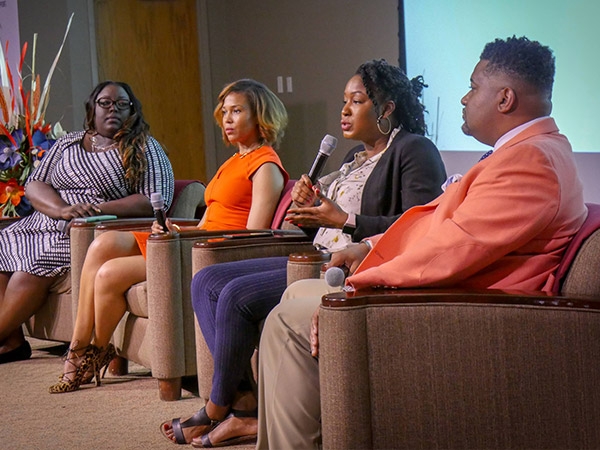
Partnership for Southern Equity, a grantee and core partner in the Justice40 Accelerator
 Asian Pacific Environmental Network
Asian Pacific Environmental Network
 Rise St. James
Rise St. James
 Soulardarity
Soulardarity
 Partnership for Southern Equity
Partnership for Southern Equity
The Solutions Project makes grants to organizations working at the intersection of climate, racial, and economic justice. We prioritize communities and leadership that are under-invested by philanthropy and are also innovators in climate justice.
In addition to providing self-determination grants (general operational support) to organizations, we also fund strategic alliances of grassroots organizations and co-created three innovative funds with grantee partners in 2021.
More money helps these grassroots organizations scale solutions that are responsive to and rooted in community.

 Led by women or non-binary people
Led by women or non-binary people
 Led by people of color
Led by people of color

Members and staff of Asian Pacific Environmental Network (APEN)
We provide additional support through communications training, digital capacity, and media programs. More media attention brings climate justice stories into the public imagination and influences policymakers and people all over the country to show up for climate justice.
65 grantees received custom capacity-building investments
25 million people viewed their stories with nine billion possible impressions across media channels

Goldman Prize winner Sharon Lavigne, ED of Rise St. James
The percentage of clean energy media coverage that references equity and justice reached a record high. When climate justice is visible to more people through media representation, we show what is possible and build support for policy solutions that act on justice.
This narrative shift shows the ripple effect of our strategy to amplify our grantees’ climate solutions stories in the media. As equity is adopted as a core value across our field, rooting stories in communities of color is key.

Soulardarity in Highland Park, MI being interviewed by the Today Show
When frontline communities are represented in every space, solutions are informed and rooted in equity.
As these communities and leaders continue to build power, climate justice will set the agenda and lead the decision-making.
Seven of our grantee partners were among 26 leaders across academia and the environmental movement appointed to the White House Environmental Justice Advisory Council.
Seven grantees and Gloria oversaw more than $100M in philanthropic giving this year while also playing lead roles in the Climate Justice Pledge campaign by Donors of Color Network.

Partnership for Southern Equity, a grantee and core partner in the Justice40 Accelerator
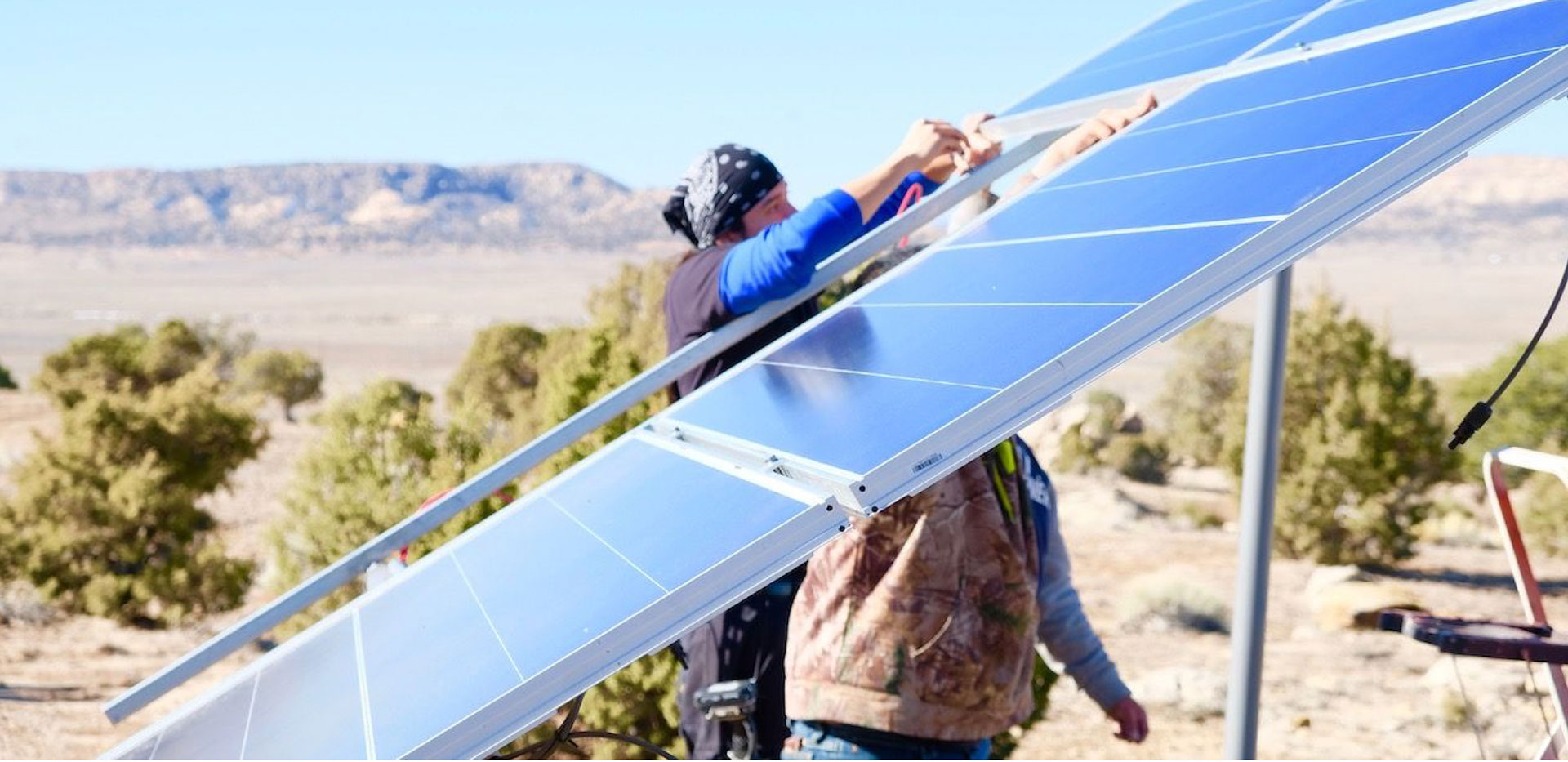 Native Renewables
Native Renewables
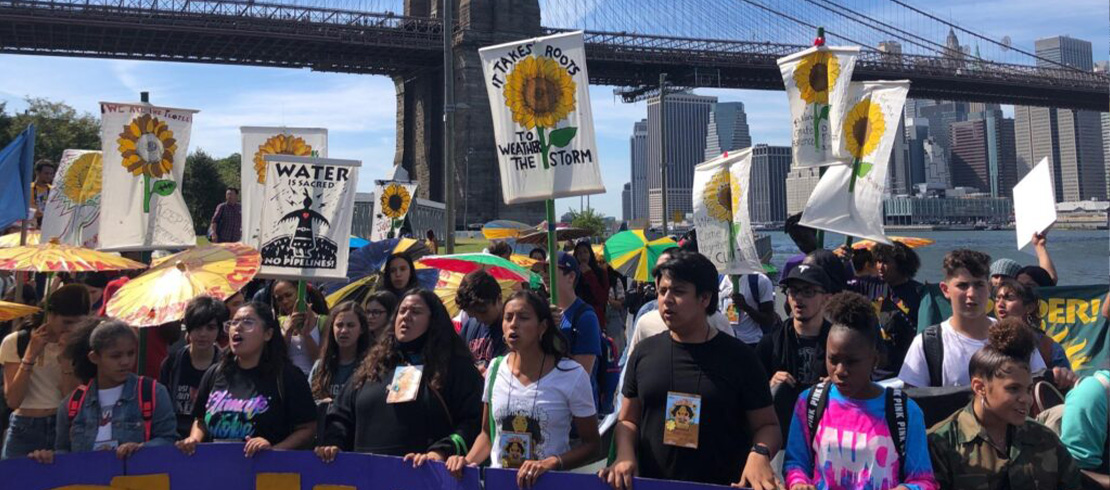 UPROSE
UPROSE
We’re moving money to locally-led climate justice organizations that are providing the blueprints for how we solve the climate crisis, starting with those that are impacted the most.
Nearly all of our grantees work at the grassroots level to advance a just transition to a green economy. Climate justice solutions are as diverse as the communities they serve, from rural electric cooperatives to fossil fuel infrastructure resistance to regenerative farming. The Solutions Project is working across our grantee network to catalogue frontline climate justice solutions. Today, we see 16 solutions in energy, water, and food systems that build a foundation for a regenerative economy.
Our grassroots grantees utilize power-building strategies such as community organizing, policy advocacy, community and economic development, integrated voter engagement, arts and culture, education, and direct services. They organize multi-racial, immigrant, intergenerational, and worker coalitions. Most have been working in their communities for decades.
Learn about the Just Transition framework from our movement partner, Climate Justice Alliance.
Indigenous organizers have long led the fight to protect land and stop greenhouse gas pollution, mobilizing millions of people to reexamine their own relationship with the land in order to build a just and regenerative future for everyone. Indigenous language, knowledge, and practice carries centuries of wisdom on cultivating a deeper relationship with mother earth.
This activism demands the respect and restoration of Indigenous sovereignty, while increasing land and water protection, thereby creating healthier communities.
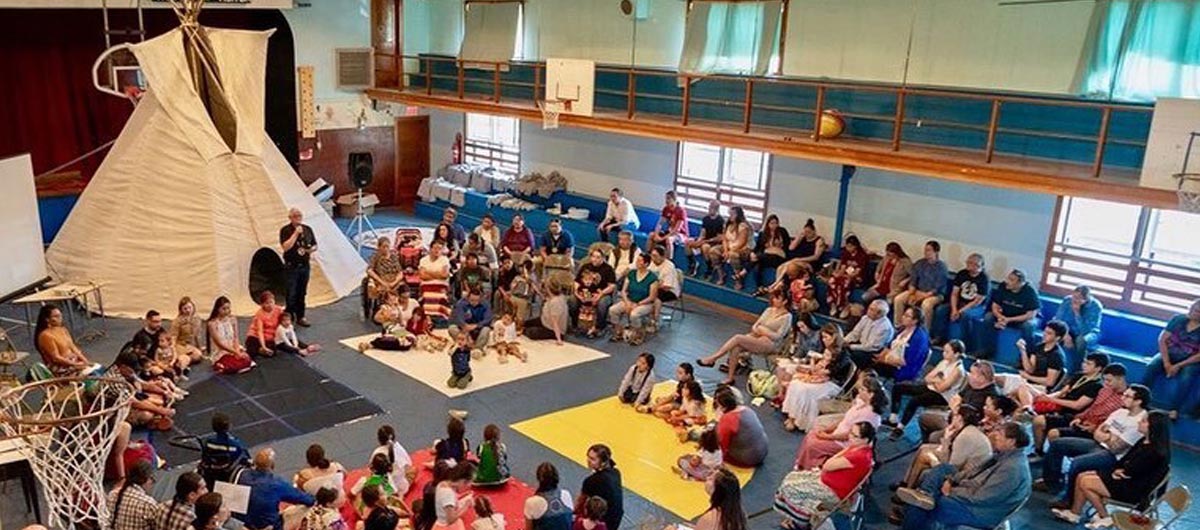
If I am to describe Thunder Valley in one word, it's liberation. Our vision as an organization is liberation for the Lakota people through language, lifeways, and spirituality.”
Tatewin Means
Executive Director, Thunder Valley Community Development Corporation

Restoration of Indigenous sacred sites Bears Ears and Chaco Canyon.
Brought the fight against Line 3, a proposed tar sands pipeline, to national attention building support for water protections as a source for a regenerative economy.
Grantee Partners
Honor the Earth, RISE, Giniw Collective, and Indigenous Environmental Network
SlateRegenerative and self-sustaining community development for Lakota collective healing and liberation.
Black, Indigenous, immigrant, and other frontline community organizers are stopping proposed oil, gas, and coal projects, changing the course after decades of dirty industry, and making way for the green economy.
These community-led efforts that protect the rights and livelihoods of low-income and working people are part of a larger Just Transition that builds power for people as we shift to a clean energy future.
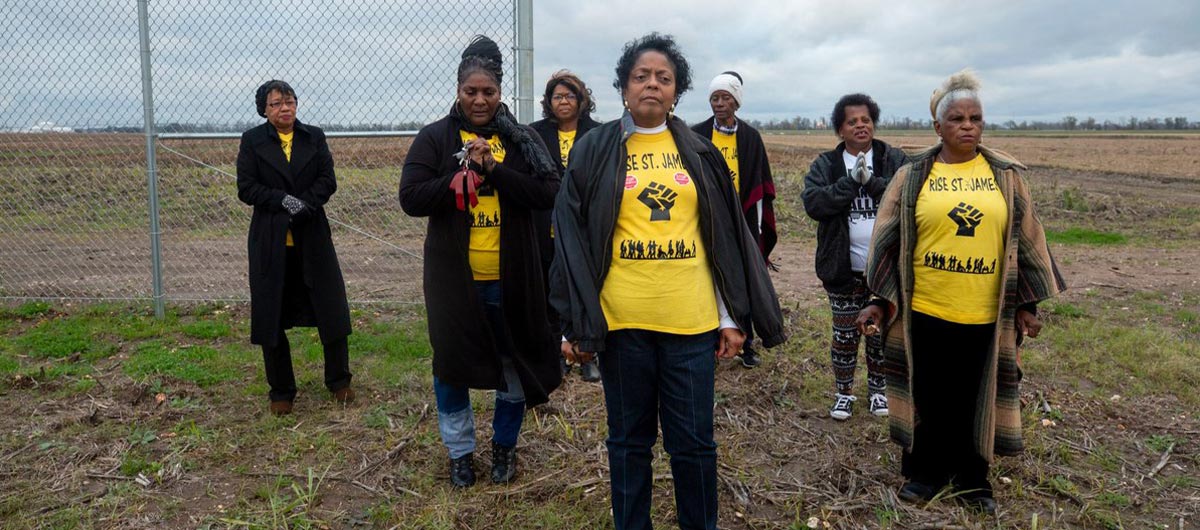
This is a life and death situation. If they [Formosa] come in here, it is a death sentence. That's why we have to continue to fight, and that's what I am going to do. I am going to fight.”
Sharon Lavigne
President, Rise St. James

Los Angeles County votes to phase out oil and gas drilling.
Grantee Partners
Strategic Concepts in Organizing and Policy Education (SCOPE), Communities for a Better Environment (CBE), and Stand Together Against Neighborhood Drilling - Los Angeles (STAND LA) Coalition
Associated PressThe Byhalia Pipeline development that was polluting waterways in mostly Black South Memphis neighborhoods was stopped.
Ford Motor Company announced new EV factories bringing 11,000 new jobs to Kentucky and Tennessee, and is working with The Solutions Project and partners to ensure the plants do right by the community and the land.
Grantee Partners
Memphis Community Against Pollution and Kentuckians for the Commonwealth (KFTC)
TwitterAfter years of advocacy, Brooklyn's oldest Latino community-based organization secured $200 million for a major wind industry development as part of a community-determined green industrialization plan.
A coalition of local Louisiana community groups stopped Formosa Plastics Group, one of the world’s largest chemical companies, from moving forward with a $9.4 billion chemical plant expansion in what is termed “cancer alley” because of its environmental injustices.
Grantee Partners
The Descendents Project, Inclusive Louisiana, Louisiana League of Conscious Voters, Louisiana Bucket Brigade, and RISE St. James
Washington PostWhen communities control their own land and infrastructure, we see innovative ideas come to life. For the millions of people who lack access to affordable electricity or live in communities where infrastructure is crumbling, clean technology solutions that are implemented from the ground up literally turn the lights on, while reducing reliance on diesel generators and helping communities thrive. With community control and stewardship of the land, safe water, and fresh food systems also flourish in support of both people and the planet.
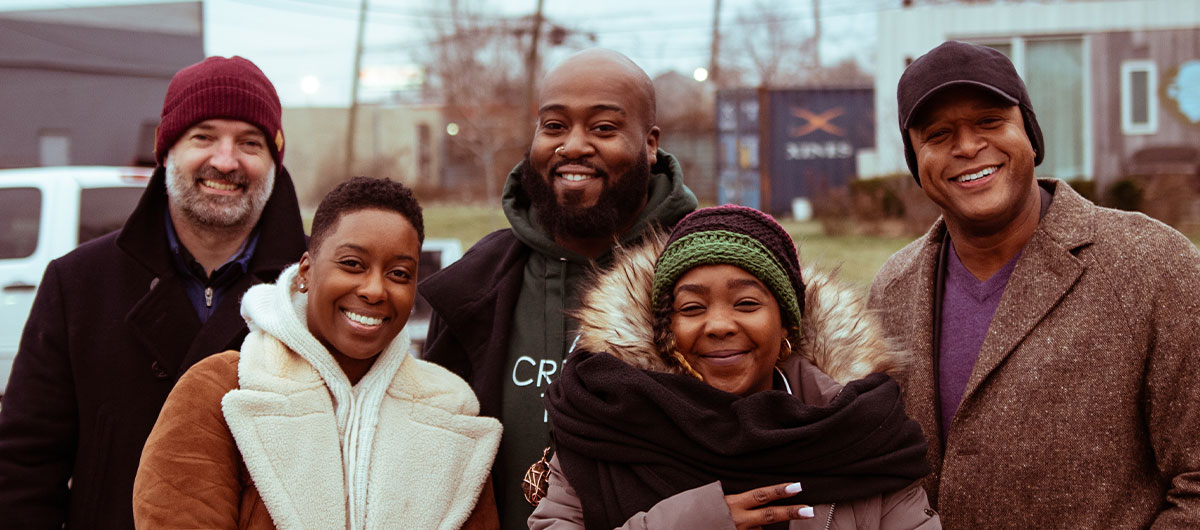
[Solar street lights] not only brought physical light, but also hope and light to the community.”
Shimekia Nichols
Executive Director, Soulardarity

In the Navajo and Hopi nations, grantee partners are installing solar systems to bring immediate benefits to thousands of homes currently without electricity and to workers demanding better and healthier jobs.
Grantee Partners
Native Renewables
In Highland Park, MI, where the community is predominantly Black, members are installing solar-powered street lamps after the city streetlights were repossessed, leaving thousands in the dark.
Community groups across three neighborhoods in Chicago gained control of vacant lots and transformed them into thriving, regenerative spaces for residents.
Grantee Partners
Blacks in Green, Grow Greater Englewood, and Little Village Environmental Justice Organization
WTTWThe farming industry across the country has been impacted by COVID, fires, and other extreme weather events. Farm workers are some of the most essential in our communities, and yet they lack health and safety protections. Healthier, safer workers means healthier, safer food.
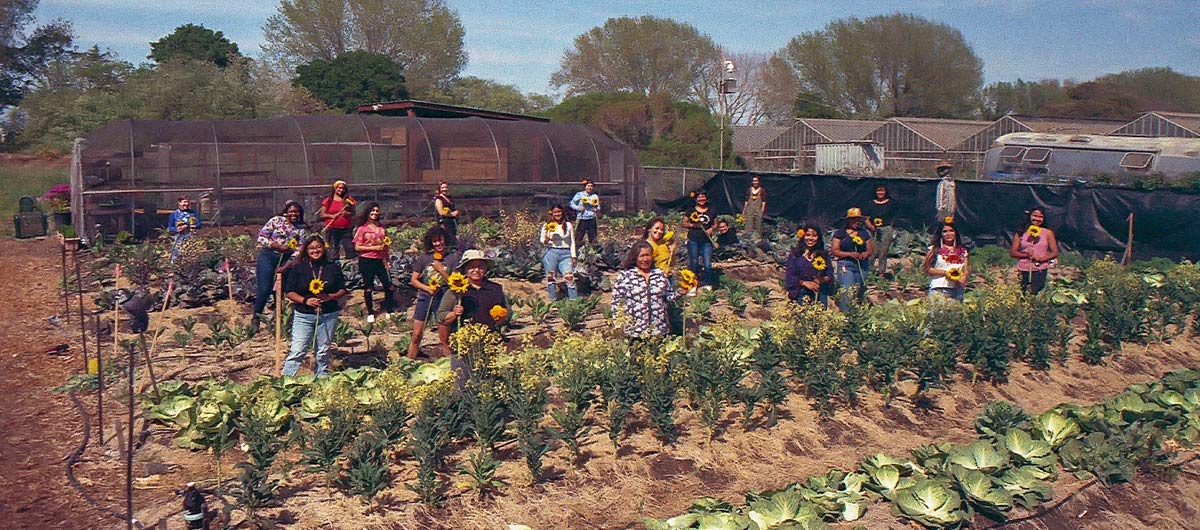
After generations of systemic social, economic, environmental and food injustice it is past time for low income community members to have their own place where we can Seed Power and Grow Justice for generations to come.”
Doria Robinson
Executive Director, Urban Tilth

Our grantee organized farm workers around major issues: immigration reform and justice, workers’ rights and protections, and climate justice. They won support in California for the nation’s first standards for protecting farm and outdoor workers from heat, including provision of water, rest periods, and shade.
After a decade of combating food injustice while empowering local residents to cultivate agriculture and build a more sustainable food system, our grantee secured approval to establish Richmond, CA’s first permanent farm.
Thousands of outdoor workers in South Florida are impacted by climate change and extreme heat and are forced to work without heat regulations. Our grantee partner launched a worker-led campaign to win protections for outdoor workers.
Mutual aid is an example of how we can scale solutions on a block-by-block basis and remain in the practice of solidarity across neighbors. For hundreds of years, Black people, Indigenous communities, and immigrants have built networks of community support to lift one another up. In 2021, COVID continued to press on all communities while the big freeze hit Texas, policymakers threatened voting rights in Georgia, and Hurricane Ida tore through Louisiana. The Solutions Project made $1.53 million in rapid response grants to 53 organizations across the country in 2021 in order to scale up mutual aid infrastructure to save lives and defend our democracy. We also purchased 780 emergency solar kits and partnered with our grantees to distribute them.
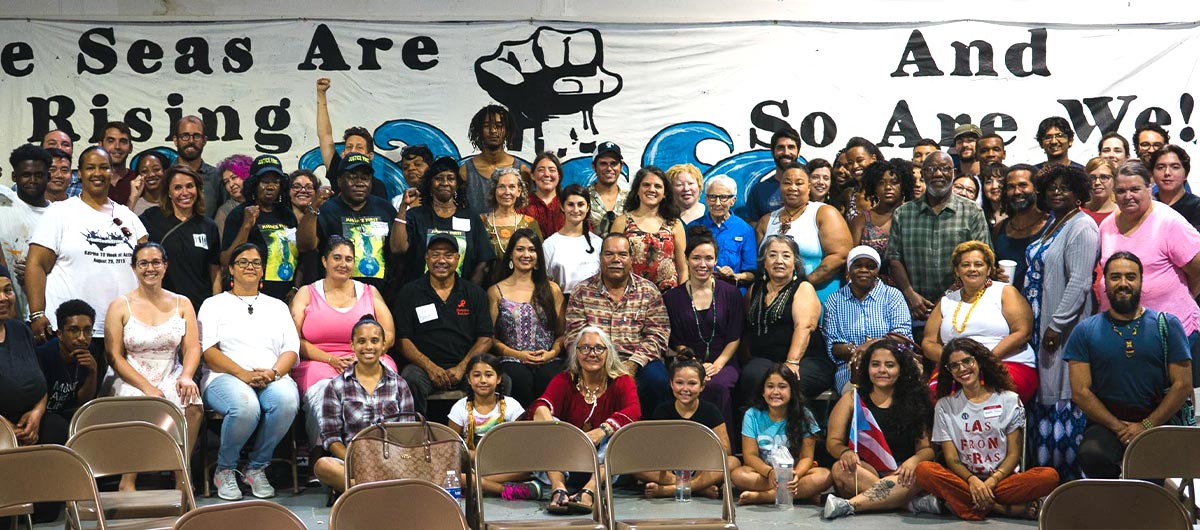
We are in a moment of survival, and we must talk to the people who have survived. This is our Indigenous leaders, this is our Black leaders. This is absolutely people who have been thrown the worst and are still here and are still fighting, and are still fighting based on love.”
Colette Pichon Battle
Co-Executive Director, Gulf Coast Center for Law and Policy (GCCLP)

When Hurricane Ida struck the Gulf Coast of Louisiana, Mississippi and days later cyclones hit Texas, our grantees responded with distribution networks that brought solar generators, water, and other supplies to the largely Black and Indigenous communities who remained without power for weeks.
Grantee Partners
Gulf Coast Center for Law and Policy, Another Gulf is Possible, RISE St. James, Louisiana Bucket Brigade, Coalition for Environment, Equity, and Resilience (CEER), LEAD Coalition of Bay County, and La Maraña
USA TodayWhen the Big Freeze took out basic infrastructure across MS and TX, our grantees mobilized mutual aid networks to ensure Black and immigrant elders and communities had access to food, water, and heat.
Indigenous organizers have long led the fight to protect land and stop greenhouse gas pollution, mobilizing millions of people to reexamine their own relationship with the land in order to build a just and regenerative future for everyone. Indigenous language, knowledge, and practice carries centuries of wisdom on cultivating a deeper relationship with mother earth.
This activism demands the respect and restoration of Indigenous sovereignty, while increasing land and water protection, thereby creating healthier communities.

If I am to describe Thunder Valley in one word, it's liberation. Our vision as an organization is liberation for the Lakota people through language, lifeways, and spirituality.”
Tatewin Means
Executive Director, Thunder Valley Community Development Corporation

Restoration of Indigenous sacred sites Bears Ears and Chaco Canyon.
Brought the fight against Line 3, a proposed tar sands pipeline, to national attention building support for water protections as a source for a regenerative economy.
Grantee Partners
Honor the Earth, RISE, Giniw Collective, and Indigenous Environmental Network
SlateRegenerative and self-sustaining community development for Lakota collective healing and liberation.
Black, Indigenous, immigrant, and other frontline community organizers are stopping proposed oil, gas, and coal projects, changing the course after decades of dirty industry, and making way for the green economy.
These community-led efforts that protect the rights and livelihoods of low-income and working people are part of a larger Just Transition that builds power for people as we shift to a clean energy future.

This is a life and death situation. If they [Formosa] come in here, it is a death sentence. That's why we have to continue to fight, and that's what I am going to do. I am going to fight.”
Sharon Lavigne
President, Rise St. James

Los Angeles County votes to phase out oil and gas drilling.
Grantee Partners
Strategic Concepts in Organizing and Policy Education (SCOPE), Communities for a Better Environment (CBE), and Stand Together Against Neighborhood Drilling - Los Angeles (STAND LA) Coalition
Associated PressThe Byhalia Pipeline development that was polluting waterways in mostly Black South Memphis neighborhoods was stopped.
Ford Motor Company announced new EV factories bringing 11,000 new jobs to Kentucky and Tennessee, and is working with The Solutions Project and partners to ensure the plants do right by the community and the land.
Grantee Partners
Memphis Community Against Pollution and Kentuckians for the Commonwealth (KFTC)
TwitterAfter years of advocacy, Brooklyn's oldest Latino community-based organization secured $200 million for a major wind industry development as part of a community-determined green industrialization plan.
A coalition of local Louisiana community groups stopped Formosa Plastics Group, one of the world’s largest chemical companies, from moving forward with a $9.4 billion chemical plant expansion in what is termed “cancer alley” because of its environmental injustices.
Grantee Partners
The Descendents Project, Inclusive Louisiana, Louisiana League of Conscious Voters, Louisiana Bucket Brigade, and RISE St. James
Washington PostWhen communities control their own land and infrastructure, we see innovative ideas come to life. For the millions of people who lack access to affordable electricity or live in communities where infrastructure is crumbling, clean technology solutions that are implemented from the ground up literally turn the lights on, while reducing reliance on diesel generators and helping communities thrive. With community control and stewardship of the land, safe water, and fresh food systems also flourish in support of both people and the planet.

[Solar street lights] not only brought physical light, but also hope and light to the community.”
Shimekia Nichols
Executive Director, Soulardarity

In the Navajo and Hopi nations, grantee partners are installing solar systems to bring immediate benefits to thousands of homes currently without electricity and to workers demanding better and healthier jobs.
Grantee Partners
Native Renewables
In Highland Park, MI, where the community is predominantly Black, members are installing solar-powered street lamps after the city streetlights were repossessed, leaving thousands in the dark.
Community groups across three neighborhoods in Chicago gained control of vacant lots and transformed them into thriving, regenerative spaces for residents.
Grantee Partners
Blacks in Green, Grow Greater Englewood, and Little Village Environmental Justice Organization
WTTWThe farming industry across the country has been impacted by COVID, fires, and other extreme weather events. Farm workers are some of the most essential in our communities, and yet they lack health and safety protections. Healthier, safer workers means healthier, safer food.

After generations of systemic social, economic, environmental and food injustice it is past time for low income community members to have their own place where we can Seed Power and Grow Justice for generations to come.”
Doria Robinson
Executive Director, Urban Tilth

Our grantee organized farm workers around major issues: immigration reform and justice, workers’ rights and protections, and climate justice. They won support in California for the nation’s first standards for protecting farm and outdoor workers from heat, including provision of water, rest periods, and shade.
After a decade of combating food injustice while empowering local residents to cultivate agriculture and build a more sustainable food system, our grantee secured approval to establish Richmond, CA’s first permanent farm.
Thousands of outdoor workers in South Florida are impacted by climate change and extreme heat and are forced to work without heat regulations. Our grantee partner launched a worker-led campaign to win protections for outdoor workers.
Mutual aid is an example of how we can scale solutions on a block-by-block basis and remain in the practice of solidarity across neighbors. For hundreds of years, Black people, Indigenous communities, and immigrants have built networks of community support to lift one another up. In 2021, COVID continued to press on all communities while the big freeze hit Texas, policymakers threatened voting rights in Georgia, and Hurricane Ida tore through Louisiana. The Solutions Project made $1.53 million in rapid response grants to 53 organizations across the country in 2021 in order to scale up mutual aid infrastructure to save lives and defend our democracy. We also purchased 780 emergency solar kits and partnered with our grantees to distribute them.

We are in a moment of survival, and we must talk to the people who have survived. This is our Indigenous leaders, this is our Black leaders. This is absolutely people who have been thrown the worst and are still here and are still fighting, and are still fighting based on love.”
Colette Pichon Battle
Co-Executive Director, Gulf Coast Center for Law and Policy (GCCLP)

When Hurricane Ida struck the Gulf Coast of Louisiana, Mississippi and days later cyclones hit Texas, our grantees responded with distribution networks that brought solar generators, water, and other supplies to the largely Black and Indigenous communities who remained without power for weeks.
Grantee Partners
Gulf Coast Center for Law and Policy, Another Gulf is Possible, RISE St. James, Louisiana Bucket Brigade, Coalition for Environment, Equity, and Resilience (CEER), LEAD Coalition of Bay County, and La Maraña
USA TodayWhen the Big Freeze took out basic infrastructure across MS and TX, our grantees mobilized mutual aid networks to ensure Black and immigrant elders and communities had access to food, water, and heat.
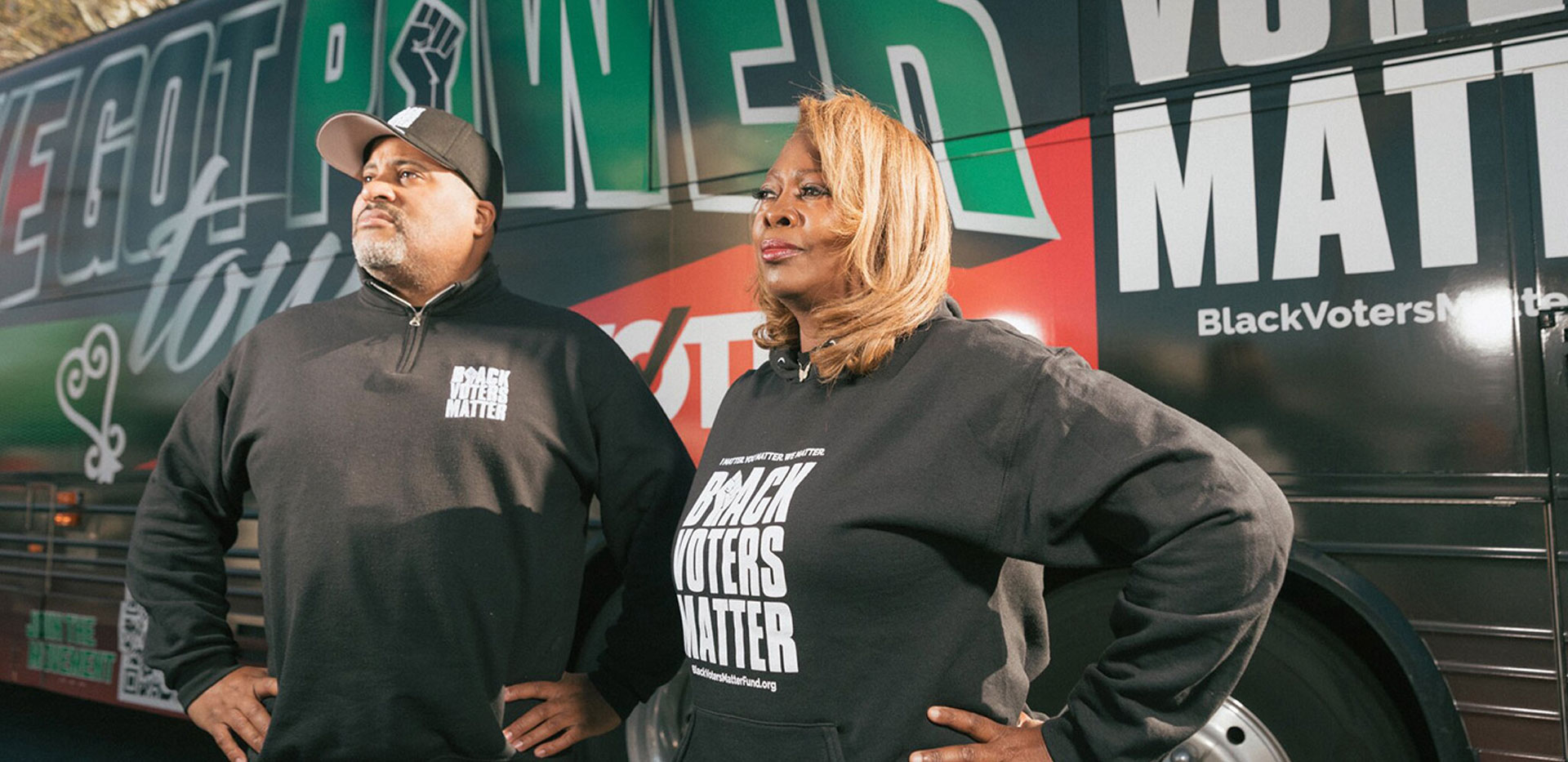 Black Voters Matter Educational Fund
Black Voters Matter Educational Fund
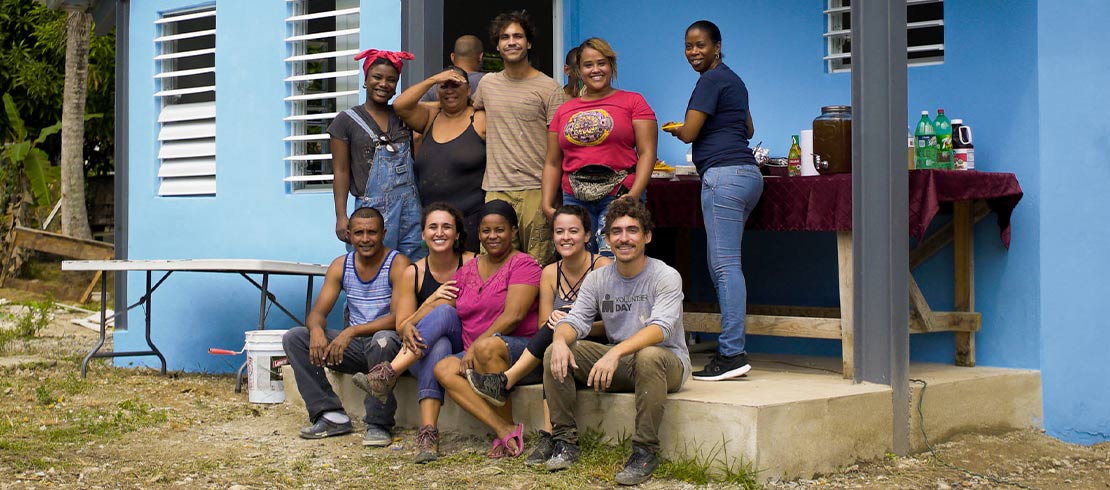 La Maraña
La Maraña
We’re supporting movement innovation and building power in solidarity with grassroots leaders and organizations through multi-year general operating grants. Additionally, we co-created new funds that are led by or center frontline communities.
Solidarity Philanthropy reaches for the highest impact and integrity grantmaking while rooting in the baseline standards set by Trust-Based Philanthropy, a practice to address power and build equity in the philanthropy sector. Our commitment to solidarity means we build meaningful connections with our grantee partners and move in unity with the movements we support.
Solidarity is the embodiment of the values we believe in and the discovery of how to be a better long-term partner to the growing movement of social change – moving beyond the transaction of grantmaking and to the transformational part of the work. We do our homework, listen deeply, and share our learnings with the field. We are intrinsically accountable, and this transparency and opening to feedback is what it takes to be in deep relationship and solidarity. We defer to the expertise of grassroots partners, including their funding recommendations. The front-line led funds we co-developed in 2021 are an example of solidarity philanthropy in practice.
Frontline leaders asked The Solutions Project to help co-develop three innovative funds in 2021.
We're working with grassroots grantee partners to influence donors and foundations to fund frontline communities, and double the annual philanthropic giving for Black, Indigenous, women, and People of Color-led climate justice organizations.
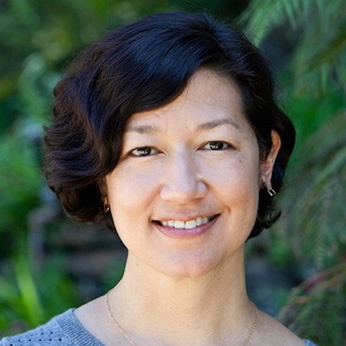
Miya Yoshitani Advisor and former Executive Director, APEN
The Solutions Project is trusted by frontline leaders because it has demonstrated its capacity to listen, learn from, and truly strengthen grassroots innovations in solving the climate crisis.
Fund for Frontline Power
Climate Justice Alliance Edge Funders NetworkCreated to accelerate the flow of capital, land stewardship, and resources to the grassroots. Fully governed by 13 frontline leaders, a $10 million fund supporting the solutions most important for climate justice.
The Solutions Project:
Justice40 Accelerator
Elevate Groundswell Hummingbird Firm Partnership for Southern EquityDesigned to increase access and capacity to draw down funding for frontline groups eligible for new federal investments.
The Solutions Project:
Communicating Our Power
Center for Story-based Strategy Climate Justice AllianceDedicated funding for communications staff and narrative fellowship participation.
The Solutions Project:
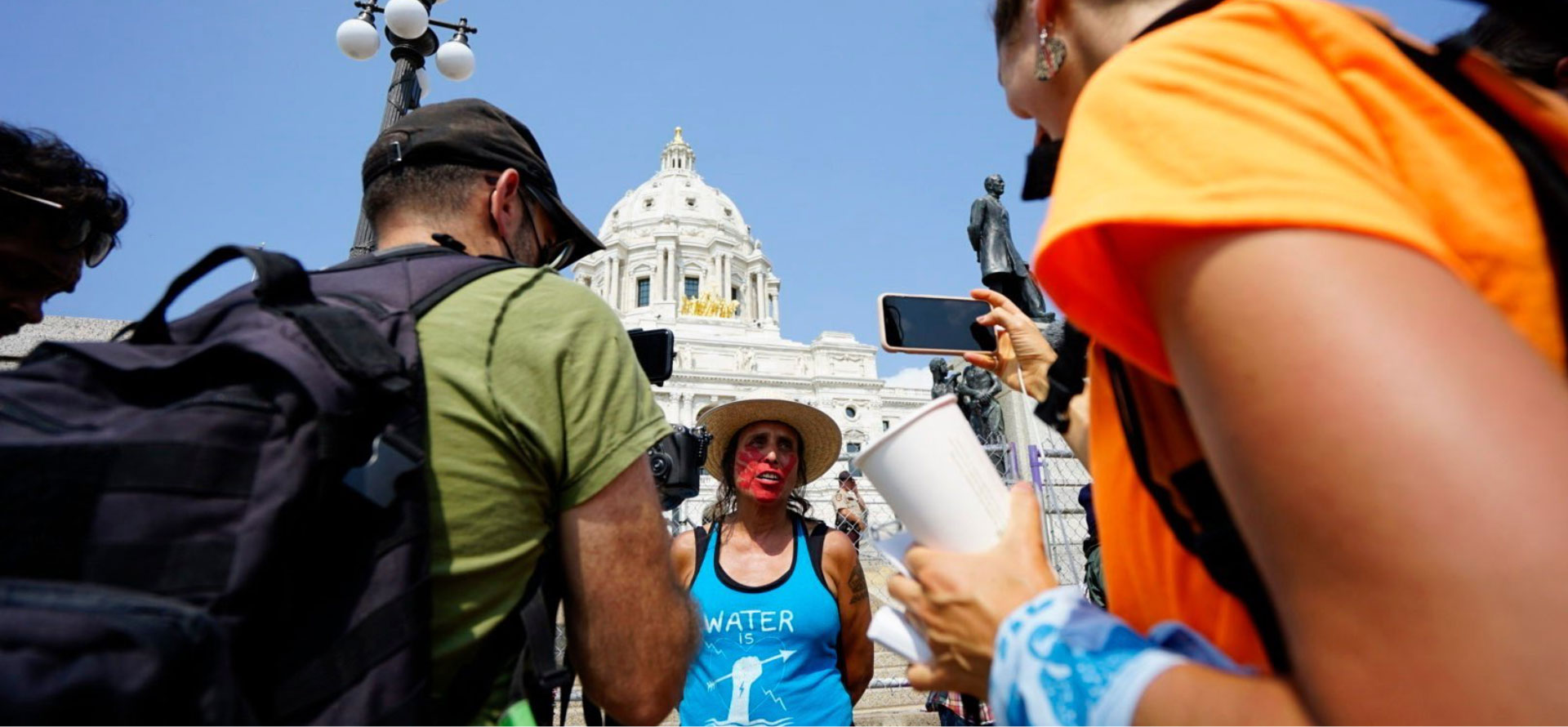 Honor the Earth
Honor the Earth
The Solutions Project and many of our grantees are inspired by the late movement leader, Grace Lee Boggs who said, “Solutionaries are today's revolutionaries”.
Our grantmaking and communications programming leads the field in resourcing and amplifying frontline solutions and the communities creating them. In that spirit, solutionaries are those creating the future we want, together.
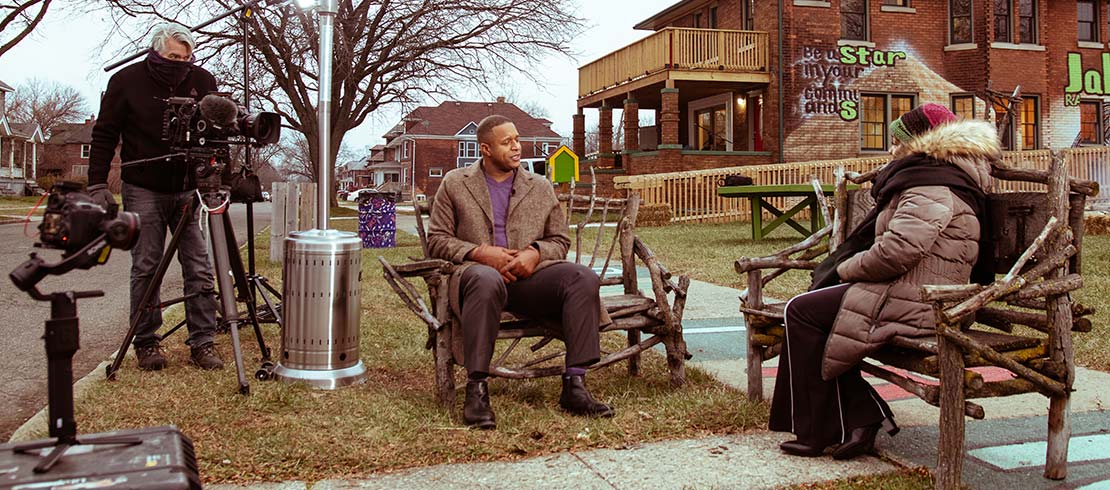 Soulardarity
Soulardarity
We’re helping frontline communities build power by increasing grantee partners’ communications capacity, leveraging relationships with celebrities and brands, and amplifying solutions. When we build cultural power, we increase influence and political power.

Yessenia Funes Journalist, Atmos and founding member of The Uproot Project, a Solutions Project partner
For a long time, environmental justice was kept separate from the environment at large. It’s become “mainstream” only recently, so it just wasn’t something the general public– including reporters—really knew about. We see that slowly changing, and we’re seeing more environmental reporters become more sophisticated in their understanding of environmental issues and how they impact communities of color.
The programming we offer aims to build our grantees’ communications capacity, increase their influence with key audiences, and shift media coverage of the climate crisis to center equitable solutions created by frontline communities.
In 2021, our staff and program delivery partners provided 65 grantees with digital and communications services, design support, and access to major platforms that further amplify their work.
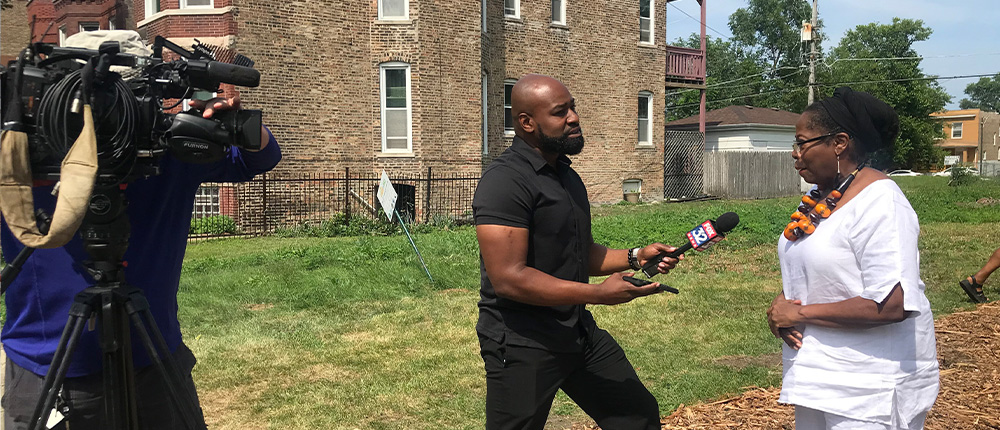
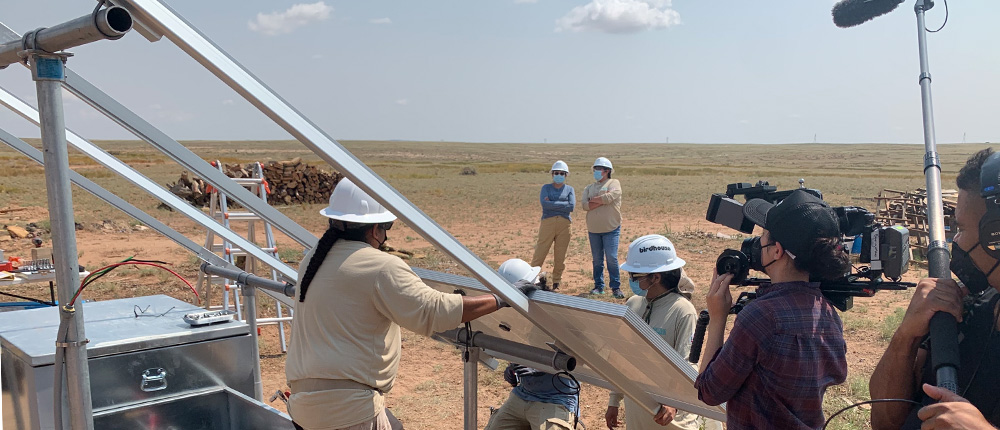
As we organize journalists to cover climate more equitably and provide support to our grantees to engage in the media, we also track the results. In 2021, media coverage of clean energy through an equity lens and rooted in communities of color continued to improve. Representation of communities of color and women went up again. And movement-aligned media messaging on renewable energy, water solutions, and food systems emerged.
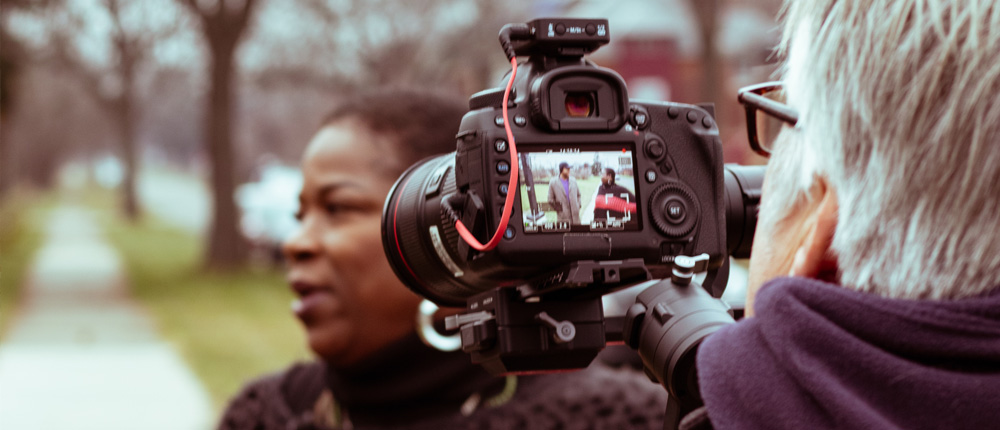
2021 narrative trends reveal alignment with the climate justice movement.
We reviewed 7200 articles for our 2021 Narrative Trends Report.
Renewable Energy
Renewable energy expansion is top of mind.
Approximately 3 in every 5 articles contained some reference to renewable energy expansion.
Facing disaster, it’s resilient and reliable.
1016 messages talk about renewable energy as a safety and security measure.
It promotes equity & justice.
Renewable energy articles that referenced communities of color went from 13% in 2020 to 20% in 2021. And 30% of renewable energy article mention issues of equity and justice.
Water Solutions
Improves safety and resilience.
594 messages on water infrastructure improving safety.
Action needed on PFAs and contaminants.
571 messages on contaminated water. 23 were bipartisan.
Equity messaging “baked-in” to coverage.
20% attributed leadership to movements, 45% to government. The White House acknowledged this was due to movement leaders’ work.
Food Systems
Food supply issues disproportionately affect frontline leaders.
110 food articles use an equity lens in their coverage.
Successful movement campaigns enabled government-led solutions.
844 articles tout the government as the leader. But 27% acknowledge movement leaders pushing for change.
We thoughtfully engage celebrities, influencers, and brands to join us in amplifying climate justice solutions. When they shine a light and pass the mic, solutionaries can tell their own stories on big platforms at the right moment to catalyze action.
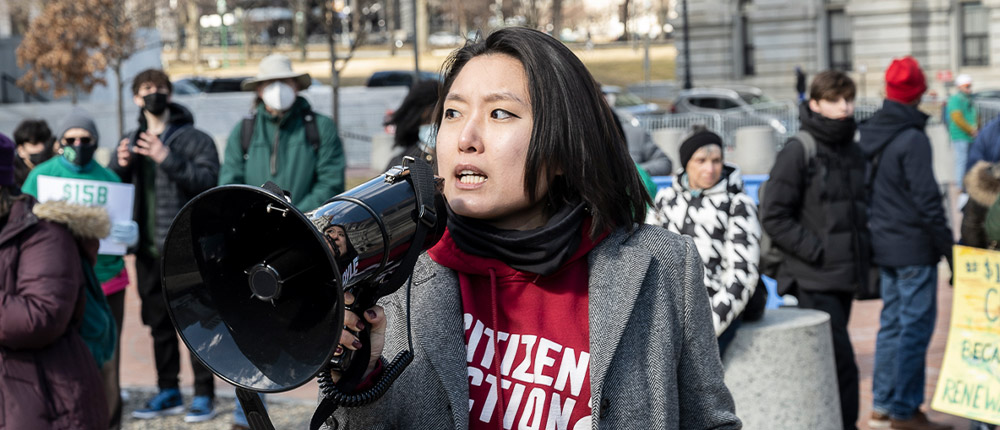
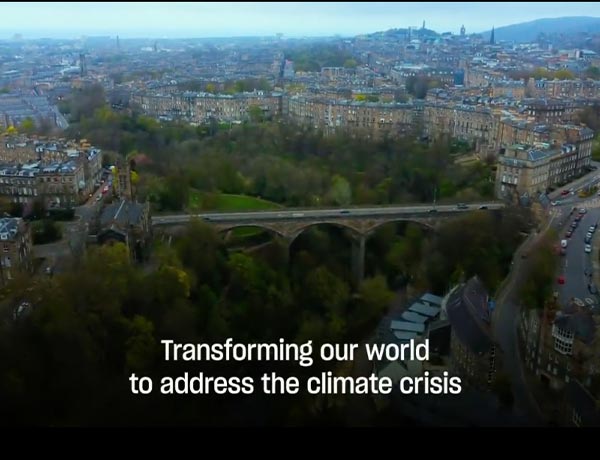
TED Countdown
Don Cheadle shines the light on GCCLP, PUSH Buffalo, Honor the Earth, UPROSE, and Catalyst Miami.
Watch on Instagram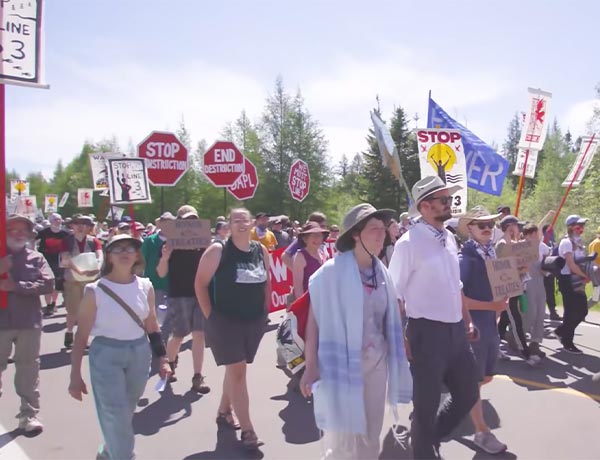
Seventh Generation,
a Unilever Company
Honor the Earth is joined in the fight against Line 3.
Watch on YouTube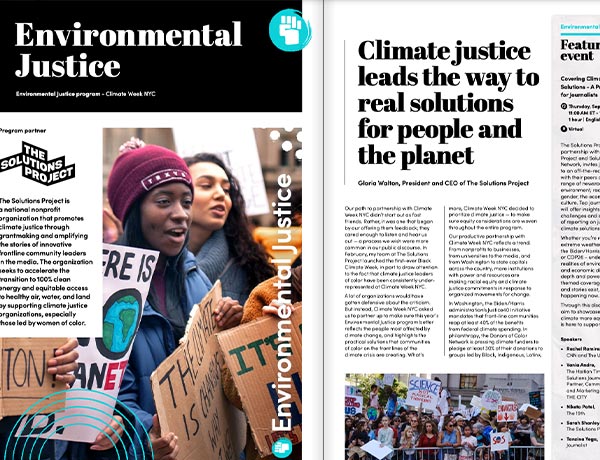
Climate Week NYC
UPROSE is celebrated in the Climate Week NYC ad campaign.
Read More at Climate Week NYCClimate justice solutionaries are developing and informing policy while stepping into governance roles.
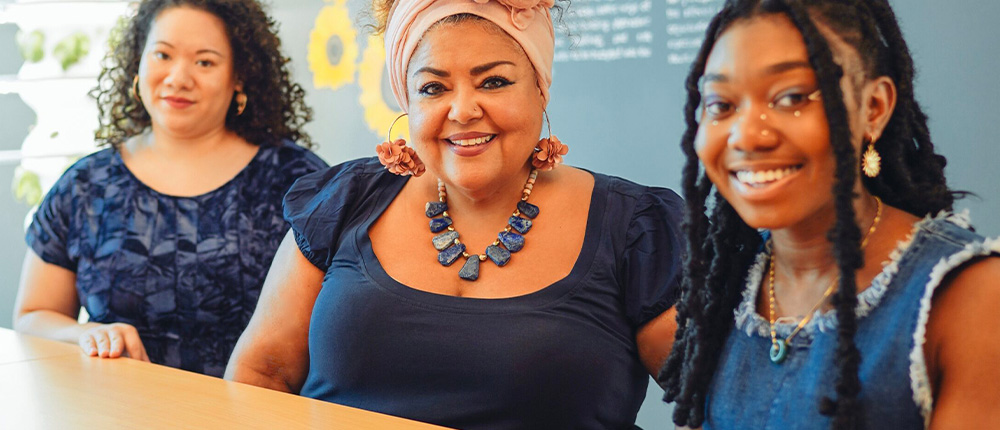
Grantee Partners Appointed to WHEJAC
The Biden-Harris Administration began its first year with environmental justice at the top of its environmental and climate agenda.
Seven of our grantee partners are represented on the newly formed 26-member White House Environmental Justice Advisory Council, which will make recommendations on federal investments that will benefit frontline communities.
377 media hits viewed by more than 25 million people with a potential reach in the billions.
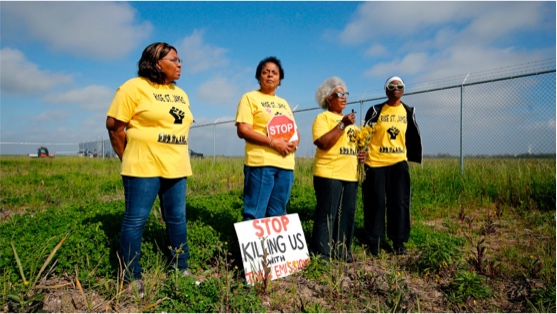 Rise St. James
Rise St. James
We can’t look back without also looking forward.
Even with the five-fold increase in our grantmaking and tripling of our communications capacity in 2021, we learned that the new support we offered just scratched the surface of the needs in the field.
In 2022, we're building on our Solidarity Philanthropy practice, influencing other grantmaking institutions and individuals to act in partnership with grassroots movement and lead with trust.
Our leadership in philanthropy continues to grow beyond our groundbreaking 100% Commitment to Justice, directing 95% of our dollars to People of Color-led and 80% to women-led organizations.
We are also deepening our partnerships with media, artists, and influencers, bringing more people into the community as we build power for climate justice solutions.
We are at a tipping point and excited to see more of our grantee partners taking the stage, influencing policy, and shifting hearts and minds toward a just and prosperous future powered by clean energy.
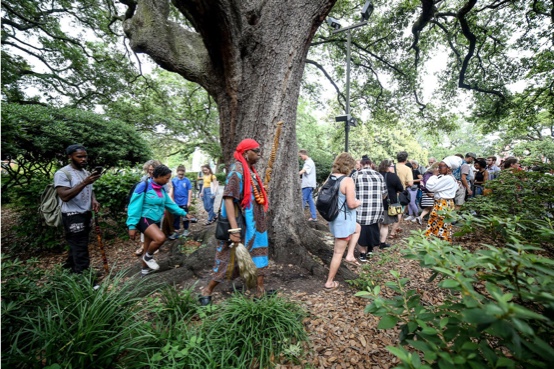 Gulf Coast Center for Law & Policy (GCCLP)
Gulf Coast Center for Law & Policy (GCCLP)
The Solutions Project partners with donors in a variety of ways. We are an intermediary funder, which means we fundraise and help donors turn charitable donations into real impact on the ground. We are also an advisor to donors who seek our expertise in designing their own grantmaking practice. Finally, we engage with the most values-aligned donors as co-creators in new offerings for frontline organizations and as a matchmaker with climate justice organizations or cultural influencers in our broader network.
Interested in Becoming a Funder? Get in touch
